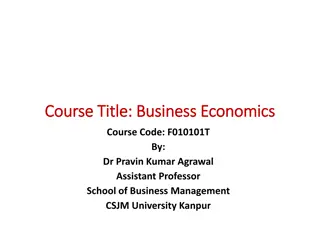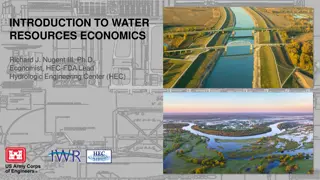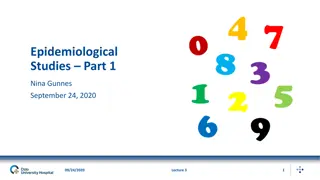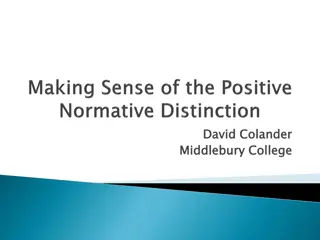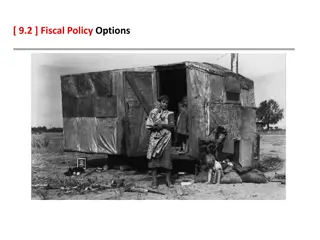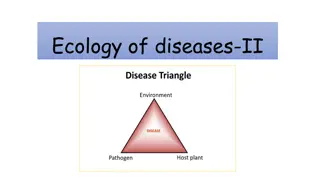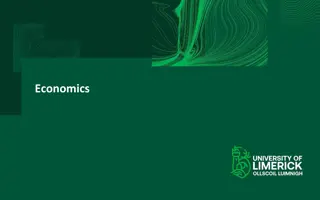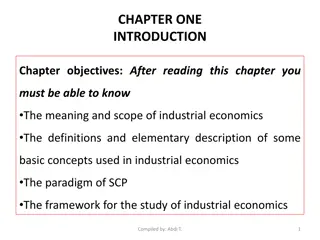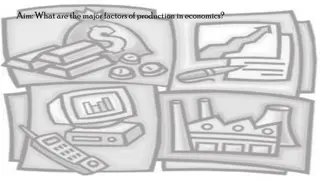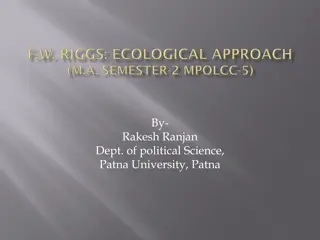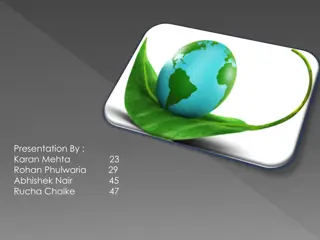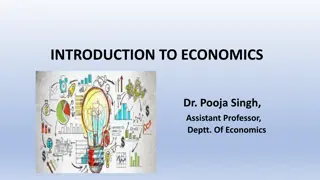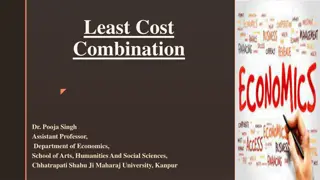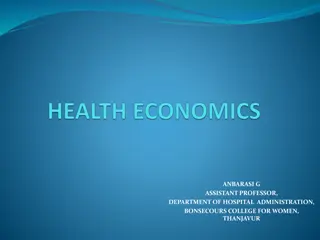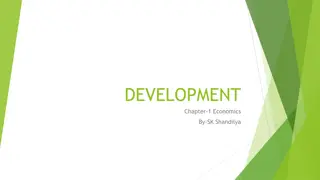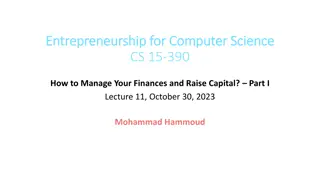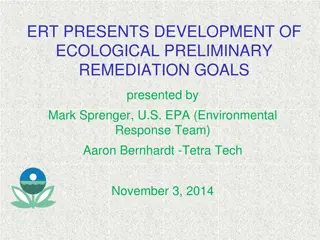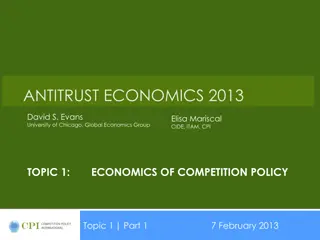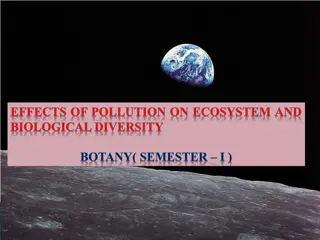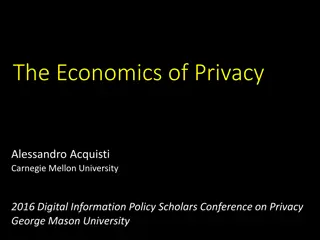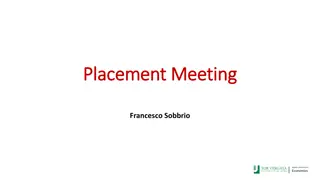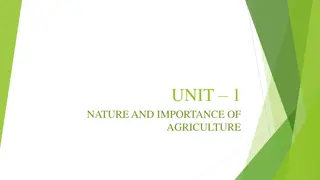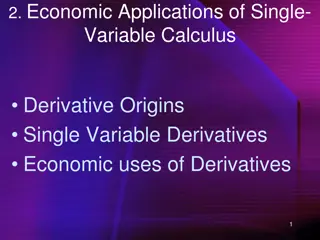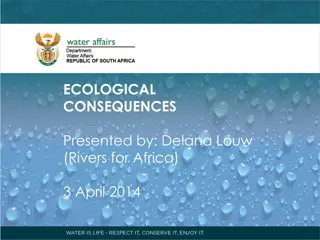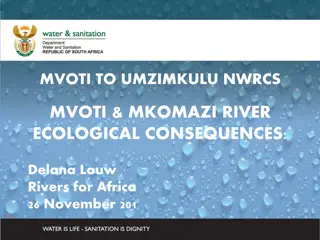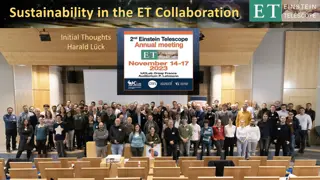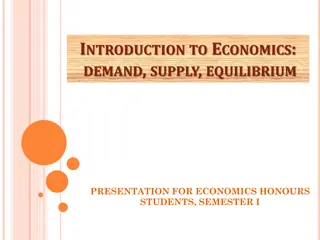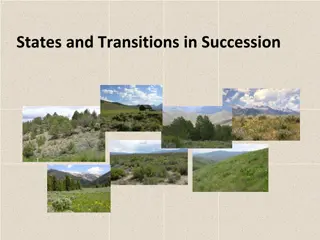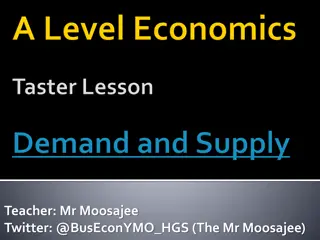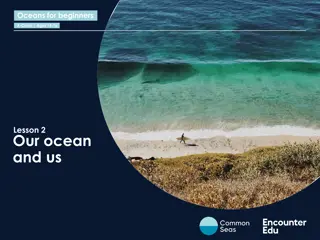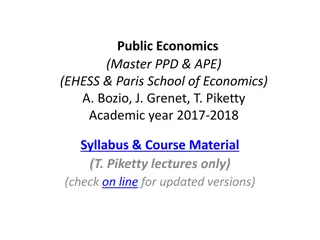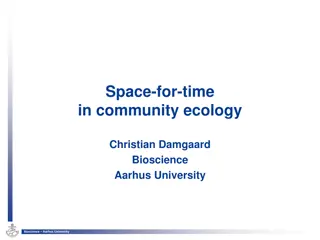Understanding Business Economics: Course Overview and Resources
Explore the course on Business Economics covering topics like demand analysis, production, pricing, and profit management. Delve into the field with suggested readings and definitions of business and economics. Gain insights into managerial decision-making in the realm of scarce resources and societ
2 views • 45 slides
Understanding Water Resources Economics
This resource introduces the principles of water resources economics, focusing on decision-making, cost-benefit analysis, and the role of economics in flood risk management and national development. It discusses how economics influences individual and government decisions in managing limited resourc
3 views • 14 slides
Introduction to Experimental Economics by John Hey: A Comprehensive Overview
Explore the interconnected realms of Experimental Economics and Behavioral Economics through the insightful lectures of John Hey, an Emeritus Professor at the University of York. Discover the methodology of testing economic theories for validity and the practical applications of experimental economi
1 views • 58 slides
Understanding Macro Economics: Importance and Significance
Macro economics, a vital field originating with the Mercantilists and further developed by J.M. Keynes, focuses on studying the economy as a whole. It encompasses aggregates like national income, employment, output, and investment, providing insights into economic fluctuations, unemployment, inflati
2 views • 6 slides
Understanding Water Resources Economics and Public Policy
Explore the foundations of water resources economics through topics such as decision-making, public economics perspectives, flood control acts, cost-benefit analysis, and optimization. Gain insights into how economics influences individual, household, organizational, and governmental decision-making
4 views • 15 slides
Explore Economics as a Leaving Certificate Subject
Economics as a Leaving Certificate subject prepares students for diverse career paths in business, finance, and management. The course includes a research project and a structured exam format. With a focus on theory, practical application, and real-world economic concepts, Economics equips students
5 views • 11 slides
Elevate Your Scores Master the IB Economics (SL and HL) Examination
Unlock your potential and excel in the IB Economics (SL and HL) Examination with our comprehensive study resources. Access practice exams, study guides, and expert tips to boost your scores. Start your journey towards academic success now!\nClick Here to Get IB-Economics Dumps With 16 USD Discount C
0 views • 7 slides
Overview of Ecological Studies in Epidemiology
Ecological studies in epidemiology involve studying groups of individuals at a population level to examine the correlation between exposure and disease occurrence. While cost-effective and useful for generating hypotheses, ecological studies have limitations, such as the inability to control for con
3 views • 21 slides
Understanding the Positive/Normative Distinction in Economics
Textbooks in economics often teach the Positive/Normative Distinction, where Positive Economics deals with facts and Normative Economics focuses on values and opinions. This distinction is a point of debate among scholars, with some arguing that values are intrinsic to all analysis. The debate also
0 views • 28 slides
Understanding Fiscal Policy Options in Economics
Explore the evolution of economic theories including classical economics, demand-side economics, and supply-side economics. Learn about the impact of key figures like John Maynard Keynes and Milton Friedman on fiscal policy decisions and the U.S. economy. Delve into the strategies employed during th
0 views • 18 slides
Understanding Ecosystems and Disease Ecology
Explore the diverse types of ecosystems, including autochthonous, anthropurgic, and synanthropic ecosystems, and their impact on disease ecology. Learn about biotopes, biocenosis, ecological mosaics, and ecological interfaces, and discover how infectious diseases can be transmitted across these inte
0 views • 10 slides
Exploring Economics: Why Study, Skills Acquired, and Module Overview
Dive into the world of economics to understand why studying it is important and what skills you can develop. Explore modules covering microeconomics, macroeconomics, quantitative methods, international economics, and more, preparing you for a career in economic analysis and decision-making within th
0 views • 4 slides
Overview of Industrial Economics: Scope, Evolution, and Challenges
Industrial economics delves into economic issues of firms and industries, exploring their interactions with society. This chapter discusses the meaning and scope of industrial economics, its historical evolution from classical to contemporary theories, traditional concerns like firm performance and
0 views • 71 slides
Understanding the Major Factors of Production in Economics
Factors of production in economics encompass land, labor, capital, and entrepreneurship. Land represents natural resources, labor involves human effort, capital includes tools and machinery, and entrepreneurs drive innovation and risk-taking. These factors are essential for producing goods and servi
0 views • 10 slides
Understanding Financial Economics and Its Importance in Markets
Financial economics is a branch of economics focused on the distribution of resources in uncertain markets. It involves making decisions considering future events and creating models to analyze variables affecting decisions. Key aspects include working out portfolio risks and utilizing financial ins
0 views • 129 slides
The Ecological Approach in Comparative Public Administration
Fred W. Riggs, a proponent of the Ecological Approach in Public Administration, emphasized the importance of understanding the interaction between administrative systems and their external surroundings. He introduced the Fused-Prismatic-Diffracted Model to explore the unique contexts of developing c
0 views • 21 slides
The Standard Economic Model and Behavioral Economics
The standard economic model, rooted in neo-classical economics, assumes rational behavior with full information and known preferences. In contrast, Behavioral Economics integrates insights from psychology to provide a more nuanced understanding of consumer behavior.
0 views • 30 slides
Understanding the Relationship Between Ecology and Business
Ecology and business have a complex relationship where human activities impact the ecological environment, and in turn, the environment influences our quality of life. Maintaining ecological balance is crucial for sustainable development, and businesses play a significant role in ensuring environmen
0 views • 19 slides
Understanding Economics: Concepts and Principles Explained
Economics, derived from the Greek word Oikonomia, focuses on managing resources to achieve maximum output and satisfaction. It encompasses the study of wealth, choice-making, and dynamic growth. The discipline emphasizes the role of factors of production - land, labor, and capital - in generating in
2 views • 15 slides
Principles of Least Cost Combination in Economics
In economics, the principle of least cost combination involves determining the optimal combination of factors of production (such as capital and labor) that allows a firm to achieve maximum output at minimum cost. This is achieved by identifying the point where the isoquant curve intersects the isoc
1 views • 4 slides
Overview of Health Economics: Key Concepts and Principles
Health economics is a vital field that explores the relationship between economics and healthcare, focusing on efficiency, value, and behavior in health production and consumption. It encompasses topics like determinants of health, demand and supply of healthcare, health sector budgeting, and equity
1 views • 12 slides
Overview of Development Economics and Goals
Development economics is a branch of economics that focuses on improving the economies of developing countries by targeting factors such as health, education, working conditions, and policies. It involves macroeconomic and microeconomic analysis to enhance domestic and international growth. Differen
1 views • 11 slides
Qualities of a Successful Economics Teacher
The role of an economics teacher is crucial in shaping students' understanding and knowledge. The qualities of an effective economics teacher include expertise in economics, mastery of teaching methodologies, use of innovative teaching techniques, and a commitment to ongoing professional development
1 views • 6 slides
Financial Intelligence and Capital Management in Entrepreneurship for Computer Science
Understanding financial intelligence is crucial for success in business. Entrepreneurs must grasp unit economics, interpret financial statements, and raise capital effectively. Unit economics is key to determining if a venture is sustainable, where the Lifetime Value of an Acquired Customer must exc
3 views • 27 slides
Eco-Remediation Goals Development Training Overview
This presentation by Mark Sprenger from the U.S. EPA discusses the development of Ecological Preliminary Remediation Goals (PRGs). It covers the process steps, assumptions, risk information activities, and resources related to ecological risk assessment within the EPA's programs. The training module
0 views • 53 slides
Economics of Competition Policy in Antitrust Practice
Understanding the importance of economics in antitrust practice is crucial as it involves applying economic concepts like markets, competition, and market power. Economists play a significant role in developing case theories and evidence, making economics indispensable in dealing with competition ag
1 views • 38 slides
Understanding Biological Diversity and Ecological Organization
Exploring the intricate balance of flora and fauna on our planet, this content delves into the vast array of plant and animal species coexisting in various ecosystems. It discusses the significance of biodiversity, the interaction of biotic and abiotic components in ecological systems, and the ecolo
0 views • 41 slides
The Economics of Privacy: Evolution and Implications
The field of privacy economics has evolved over the years, from concealing information to exchanging it for economic benefits. Early theories by Posner and Stigler highlighted the redistributive nature of privacy decisions. Varian's work in the mid-1990s emphasized the importance of property rights
0 views • 49 slides
Guide to Pursuing a PhD in Economics: Roadmap for Success
Explore the comprehensive roadmap for pursuing a PhD in Economics, including insights on why, where, how, and when to apply. Learn about the benefits, challenges, and preparation tips for a successful application process. Discover key alternatives, such as research assistantships, internships, and j
0 views • 14 slides
Understanding the Significance of Agriculture Economics in India
Agriculture plays a crucial role in the Indian economy, contributing significantly to GDP and rural livelihoods. Agriculture Economics involves the study of resource allocation in the production, distribution, and consumption of agricultural goods. This branch of economics blends principles from gen
0 views • 24 slides
Economic Applications of Single-Variable Calculus Derivatives in Economics
In economics, derivatives play a crucial role in analyzing various economic phenomena such as marginal amounts, maximization, minimization, graphing, elasticity, and growth. This involves understanding derivatives of single-variable functions, slopes, instantaneous slopes, and the applications of de
0 views • 75 slides
Understanding Ecological Consequences in Ecosystem Management
Delana Louw from Rivers for Africa presented on the ecological consequences of various scenarios in ecosystem management. The process involves delineating units of analysis, stakeholder engagement, quantifying ecological water requirements, evaluating scenarios, and determining management classes. B
0 views • 14 slides
Ecological Consequences Assessment for Conservation Areas
Determining the ecological consequences of various scenarios is crucial for conservation efforts. The assessment focuses on changes in geomorphology, physico-chemical properties, fish populations, macroinvertebrates, and riparian vegetation. By evaluating scenarios based on ecological significance,
0 views • 11 slides
Sustainability Challenges in ET Collaboration: Addressing Ecological and Non-Ecological Aspects
The ET Collaboration is realizing the importance of sustainability, encompassing ecological and non-ecological aspects. Issues include balancing energy consumption and hardware longevity, remote access possibilities, funding sustainability, social partnerships, and designing instruments with sustain
0 views • 5 slides
Understanding Economics: Demand, Supply, and Equilibrium
Explore the fundamental concepts of economics, including the nature and scope of economics, demand, and its determinants. Learn about normative and positive economics, microeconomics, macroeconomics, and the factors affecting demand such as income, price of the good, and complementary goods. Gain in
0 views • 19 slides
Understanding Plant Community Succession and Ecological Transitions
Explore the dynamic process of plant community succession, from pioneer stages to climax communities, and the intricate patterns of transitions in ecological systems. Discover the variability and stability of different states within ecosystems, highlighting the complexities of natural ecological dyn
0 views • 14 slides
Understanding Economics: Explore the World of Scarce Resources, Prices, Government Policies, and Global Impacts
Delve into the intriguing realm of economics with Mr. Moosajee at HGS! Unravel the mysteries behind how scarce resources are allocated, why prices fluctuate, the impact of government policies, concerns about inflation, strategies for reducing unemployment, and more. Discover the relevance of economi
0 views • 20 slides
Understanding Ecological Goods and Services from Our Oceans
Explore the importance of ecological goods and services provided by oceans in Lesson 2 of the Oceans for Beginners curriculum. Learn about the tangible products, benefits, and services derived from ocean ecosystems, and reflect on their significance. Understand the categories of ecological services
0 views • 15 slides
Public Economics Course Summary - EHESS & Paris School of Economics
The Public Economics course at EHESS & Paris School of Economics offers an introduction to taxation history, government intervention theories, and policy incidence across developed and developing countries. The syllabus covers topics like welfare analysis, wealth taxation, and optimal taxation strat
0 views • 11 slides
Understanding Space-for-Time Substitution in Community Ecology
Space-for-time substitution (SFT) is a method used to study slow ecological processes by assuming different sites are at various stages of development. This approach, famous for its role in ecological development, has been critiqued for its implicit use in testing hypotheses on ecological processes
0 views • 7 slides
